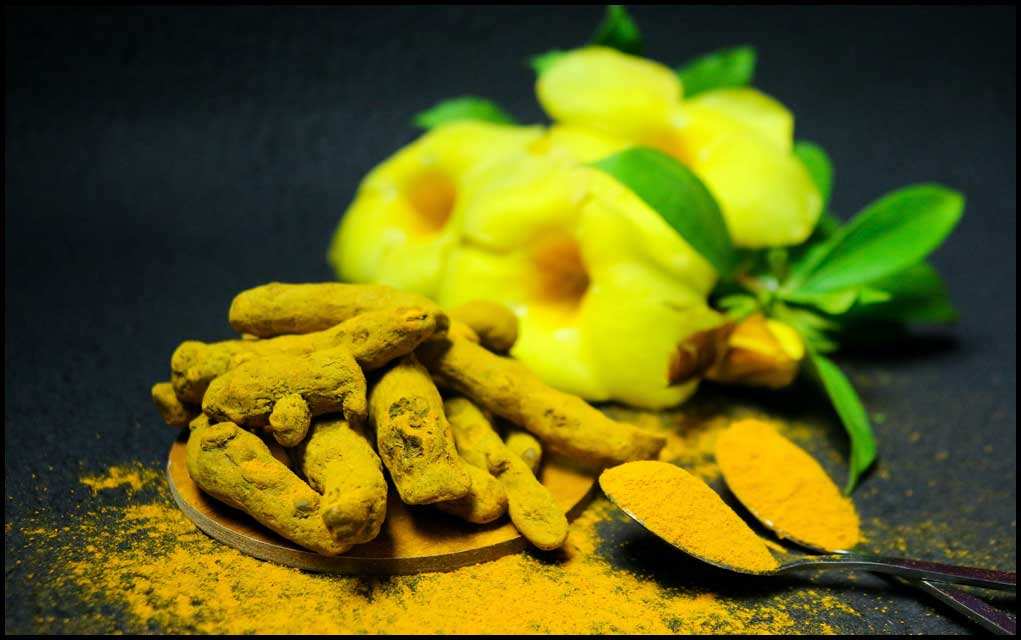
Turmeric has been used as an alternative medicine for thousands of years. It has been used to treat many diseases and conditions, including stomach problems and digestive issues.
Although anecdotal evidence suggests that this natural remedy relieves acid reflux, there are few clinical trials to prove these claims.
What Are the Benefits of Turmeric?
Pros
- Turmeric is rich in anti-inflammatory and antioxidant compounds.
- Turmeric is recognized as an alternative therapy for gastrointestinal problems.
- Curcumin is turmeric’s most active ingredient. It’s said to have potent antiviral, antibacterial, and anticancer properties.
Turmeric is rich in anti-inflammatory and antioxidant compounds. In traditional Chinese and Ayurvedic medicine, turmeric has been used to relieve arthritis pain and regulate menstruation. It’s also been used to improve digestion and liver function.
Today, turmeric is recognized as an alternative therapy for heartburn, inflammation, and stomach ulcers.
If you eat curry, you’ve consumed turmeric. It’s the ingredient that gives curry its spicy flavor and vibrant color.
Turmeric’s most active ingredient is called curcumin. It’s thought to be responsible for most of turmeric’s health benefits.
Curcumin is a polyphenol antioxidant. It’s said to have potent antiviral, antibacterial, and anticancer capabilities.
What the Research Says
Although many studies have explored the medicinal properties of turmeric and its extract curcumin, there isn’t any research focused on acid reflux.
Overall, there isn’t enough evidence to support the use of turmeric for any health condition. More research is needed to determine its effectiveness in people.
According to a 2007 study, acid reflux and gastroesophageal reflux disease (GERD) may be caused by inflammation and oxidative stress. The study suggests GERD should be treated with antioxidants and anti-inflammatories.
A separate study in 2011 showed that the anti-inflammatory effects of curcumin prevented esophageal inflammation.
Turmeric and its extract curcumin are both said to have antioxidant and anti-inflammatory properties. Because of this, turmeric may relieve GERD.
More research is currently underway. A 2019 article presented some insight on the anti-tumor, anti-inflammatory, antioxidant activity of curcumin in the treatment of issues in the digestive tract.
Curcumin protects the gut from damage from NSAIDs and other noxious agents. It has a role in keeping the bacteria associated with ulcers in check, helps ulcers heal, and it works actively on killing cancer cells in the gut.
How to Use Turmeric to Treat Acid Reflux
Turmeric’s stems, or rhizomes, can be dried and ground into a powder. The powder can be taken orally or used when cooking.
Unless you add turmeric to all of your recipes or drink a lot of turmeric tea, it may be difficult for you to consume enough turmeric to treat acid reflux. Organic turmeric extract supplements may be a better way to get medicinal amounts.
Your body absorbs turmeric and curcumin poorly. The spice and its extract are both rapidly metabolized by your liver and intestinal wall.
Various methods of delivery have been explored to increase the bioavailability of curcumin. None have taken hold at this time.
One way to increase turmeric’s absorption is to consume it with piperine. It’s commonly found in black pepper.
Turmeric and black pepper are often sold together in supplements. The pepper increases the absorption and action of the turmeric. When choosing turmeric supplements, look for brands that have black pepper extract or piperine listed as an ingredient.
Risks and Warnings
Cons
- Turmeric is a natural blood thinner, so it shouldn’t be used alongside blood-thinning medications.
- People with diabetes shouldn’t use turmeric. It can cause your blood sugar to reach dangerously low levels.
- Some people report that turmeric worsens their symptoms of acid reflux.
Turmeric is a natural blood thinner. You shouldn’t take turmeric if you take drugs that thin your blood or if you have an upcoming surgery.
Turmeric may also lower blood sugar, lower blood pressure, and make gallbladder problems worse.
Some people report that turmeric actually makes acid reflux worse. This may be due to its peppery qualities.
Taking turmeric for a long period of time or in high doses may increase your risk of indigestion, nausea, and diarrhea. If so, this treatment may not be the best approach for you, and you should discontinue treatment.
Turmeric has also caused liver damage in mice when taken long term. No liver damage has been reported in people.
If you’re on any medication, talk to your doctor before you begin any herbs or supplements, especially herbs such as turmeric that can have serious reactions with many different drugs.
Women who are pregnant or breastfeeding shouldn’t use excessive amounts of turmeric. Anything more than what’s typically used when cooking is considered excessive for this group.
There’s a risk of allergic reaction with all natural remedies. If you experience symptoms such as hives, a fast heart rate, or difficulty breathing after using turmeric, you should discontinue use. If your symptoms are severe, you should seek medical attention.
Other Acid Reflux Treatment Options
If you get heartburn occasionally, you may be able to treat it on your own with lifestyle changes.
These include:
- eating smaller meals
- not lying down after eating
- sleeping with your upper body elevated
- quitting smoking
- avoiding tight-fitting clothes that constrict your stomach area
If you have excess weight, consider consulting a personal trainer and a nutritionist to help you manage your weight, which can help relieve symptoms.
Take a look at your diet. Pay attention to which foods trigger your heartburn. Spicy foods, acidic foods, and fatty foods are common culprits. If these foods worsen your symptoms, limit them or avoid them completely.
If lifestyle changes don’t address your symptoms, your doctor may recommend you give over-the-counter medications a try. This may include antacids, proton pump inhibitors, or H2 blockers.
As a last resort, surgery may be necessary.
What You Can Do Now
Although there’s limited evidence that turmeric will help with acid reflux, it may be worth a try. Most people tolerate it well in food and when taken as a supplement.
If you plan to use turmeric, remember:
- For best results, use turmeric alongside black pepper or choose a supplement containing piperine to increase the ability of the body to absorb and use the curcumin.
- Turmeric can act as a blood thinner. You shouldn’t take turmeric alongside anticoagulant medications.
- You may experience unpleasant side effects if you take 1,500 milligrams or more of turmeric per day.
It may take a few weeks to see if turmeric helps your symptoms. If they don’t improve or worsen, you should discontinue use and consult your doctor.
DOSAGE INFORMATION
You should aim for about 500 milligrams (mg) of curcuminoids, the active component in turmeric, per day. This equals about 1/2 teaspoon of turmeric powder per day. Doses of 1,500 mg or higher per day can result in significant side effects. A maximum dose of turmeric is about 8,000 mg per day. But nausea, diarrhea, and allergic skin reactions may be experienced at much lower doses.
— Natalie Butler RD, LD
Sources:
- Acid reflux (GER and GERD) in adults. (n.d.).
niddk.nih.gov/health-information/digestive-diseases/acid-reflux-ger-gerd-adults - Kashyap P. (2019). Is acid reflux the same as GERD?
mayoclinic.org/diseases-conditions/heartburn/expert-answers/heartburn-gerd/faq-20057894 - Kwiecien S, et al. (2019). Curcumin: A potent protectant against esophageal and gastric disorders. DOI:
10.3390/ijms2006147 - Patcharatrakul T, et al. (2016). Chili peppers, curcumins, and prebiotics in gastrointestinal health and disease. DOI:
10.1007/s11894-016-0494-0 - Patrick L. (2011). Gastroesophageal reflux disease (GERD): A review of conventional and alternative treatments.
altmedrev.com/publications/16/2/116.pdf - Prasad S, et al. (2014). Recent development in delivery, bioavailability, absorption and metabolism of curcumin: The golden pigment from golden spice. DOI:
10.4143/crt.2014.46.1.2 - Yoshida N. (2007). Inflammation and oxidative stress in gastroesophageal reflux disease.
ncbi.nlm.nih.gov/pmc/articles/PMC2291500/ - Zeng X, et al. (2016). Selective reduction in the expression of UGTs and SULTs, a novel mechanism by which piperine enhances the bioavailability of curcumin in rat. DOI:
10.1002/bdd.2049
Important Notice: This article was originally published at www.healthline.com by Annette McDermott where all credits are due. Medically reviewed by Debra Rose Wilson, Ph.D., MSN, R.N., IBCLC, AHN-BC, CHT








